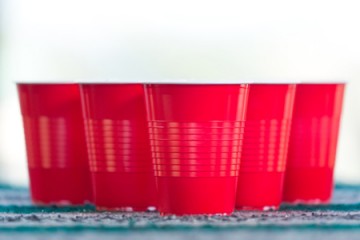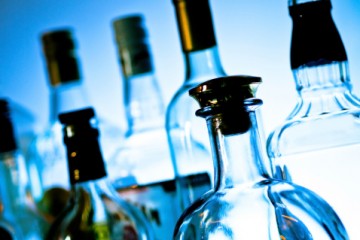Johns Hopkins University President Ronald J. Daniels today updated students, faculty, and staff on the recently released results of a survey about drinking on the campuses of nine Maryland colleges and universities and outlined the initial steps the university will take to address this "serious and urgent matter."
His message, in its entirety:
Dear Students, Faculty and Staff:
Student alcohol abuse—particularly "binge drinking"—has long stood as a critical challenge on college campuses, including our own. Its impacts are far-reaching, affecting not only the health, safety and academic success of our students, but also the overall quality of campus life.
Last year, at the invitation of state leaders, Chancellor William E. Kirwan of the University System of Maryland and I agreed to co-chair a consortium of Maryland universities and colleges aimed at confronting the mounting national concern over the serious effects of excessive student alcohol abuse.
As part of the deliberations of the collaborative, we commissioned a study of student drinking that surveyed more than 4,200 full-time undergraduates at nine Maryland colleges and universities. The results of the Maryland College Alcohol Survey were published last week and affirm our belief that campus alcohol abuse stands as a serious and urgent matter.
For instance, in the month before the study was administered, nearly half of Maryland undergraduates had engaged in binge drinking and 60 percent of students under 21 had used alcohol. In the previous year, nearly two-thirds of students had suffered hangovers and a third had blacked out. Alarming numbers of students across the state reported driving drunk or riding with an impaired driver, missing class or performing poorly on a test, having run-ins with police or campus officials, physically harming themselves or others, or having unprotected sex—because they had been drinking.
Underlying this pattern of student alcohol abuse, the survey identifies principal risk factors for students and schools across the state, such as easy access to alcohol near campuses and at off-campus parties.
At Johns Hopkins, we hold a bedrock belief that we must safeguard the health and well-being of our community at all times. And we are committed to complementing the statewide initiative in Maryland with concrete and determined actions at the campus level. Accordingly, Provost Robert Lieberman and I have decided to launch a new alcohol strategy group, under the leadership of Vice Provost for Student Affairs Kevin Shollenberger.
First and foremost, Kevin's strategy group will be working hand-in-hand with our students to develop new approaches to ensuring that responsible practices are in place—and, indeed, an accepted part of our culture. We also have identified several immediate actions for the start of this academic year:
Education: Residential Life and the Center for Health Education and Wellness will introduce a nationally recognized harm-reduction program called BASICS to our Homewood undergraduates.
Training: We have augmented our training to help staff members identify early warning signs in students, and we are expanding bystander intervention programs for new students and higher-risk student groups.
Accessibility: We are bolstering relationships with property owners, law enforcement, and local businesses to engage them more proactively in our efforts to create a safe environment for all students.
Enforcement: To reduce the incidence of binge drinking and other dangerous behaviors, including illegal drinking by minors, we are working with elected officials and other colleges and universities to seek changes to local laws and enforcement practices.
In these efforts and others, we will focus particularly on alcohol abuse at off-campus parties, which we know from both research and experience is a significant challenge at Johns Hopkins. This spring, we took strong action to resolve a chronic problem with one off-campus residence, and we will continue to hold our students accountable for violations of our alcohol policies. We also are exploring strategies for monitoring and communicating with student groups about off-campus events.
Above all, when addressing these important issues, we will rely on our students. The energy and ideas of our student body are the driving force upholding the values that steer our university community. We will look to student leaders across the campus—from Greek life, athletic teams, and student government to theater groups, dance troupes, and advocacy or volunteer organizations—to propel our efforts and to take on the challenge of making college life safer for themselves and for each other.
Sincerely,
Ronald J. Daniels
Posted in University News, Student Life
Tagged binge drinking









